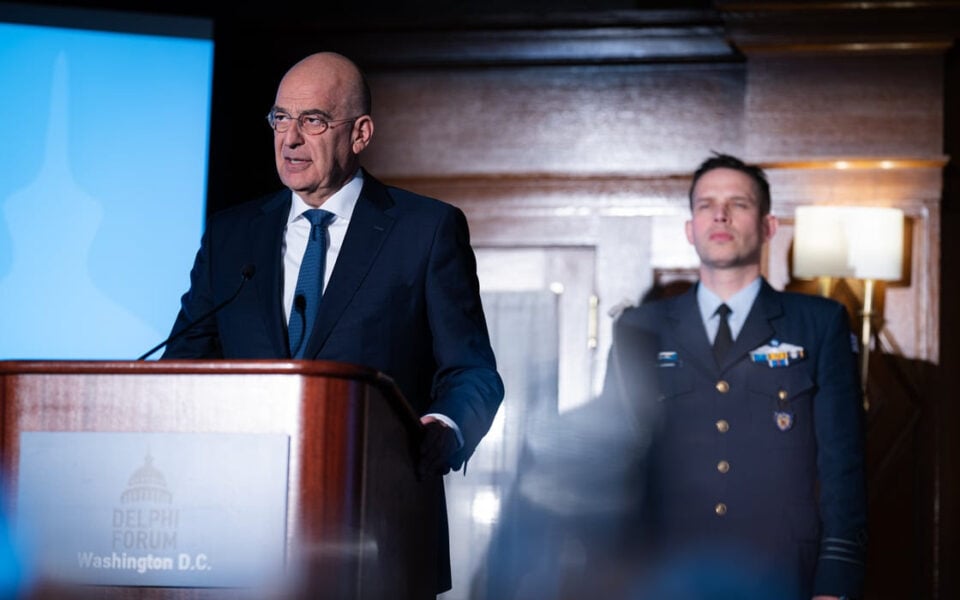Greek Minister of National Defense Nikos Dendias emphasized Greece’s strategic importance in US foreign policy during his speech at the 6th Southeast Europe and Eastern Mediterranean Conference in Washington, DC, on Tuesday.
After outlining the volatile geopolitical landscape, he mentioned emerging challenges from Russia, China, climate change and the global economy, adding that no country can tackle these challenges alone.
“Who will be the allies of the United States of America in the effort to stabilize this world?,” Dendias asked.
Following this, Dendias compared Greece to an unnamed Mediterranean country and urged the US to consider which nation best aligns with its interests.
“On one hand, we have an authoritarian country that does not feel that it has to abide by international law and the International Law of the Sea,” Dendias stated. He added that this country fails to respect its NATO commitments, maintains close ties with Russia and is an adversary of Israel.
In contrast, he presented Greece as a model of stability and democratic values.
“Allow me to present another example, a country supporter of international law and the International Law of the Sea and a rules-based international order,” Dendias said, referring to Greece. He highlighted that Greece is a democracy that stood by Ukraine, supports the integration of the western Balkans in the EU and reminded the audience that it lost 10 percent of its population in World War II while fighting alongside the Allies.
“These two models present themselves to the United States to choose,” Dendias concluded.
Dendias elaborated on Greece’s role as a US ally, highlighting the country’s key defense agreements and contributions. He listed agreements such as the two Mutual Defense Cooperation Agreements between Greece and the U.S. in 2019 and 2021 and Greece’s active participation in NATO and EU-led initiatives including KFOR and Operation Aspida.
Furthermore, he emphasized Greece’s strong commitment to defense spending, noting that it significantly exceeds NATO’s 2% threshold.
“We spent more than 3,5% of our GDP on our defense of which 45% is spent on armaments,” Dendias said, criticizing what he called Europe’s “schizophrenic” approach of demanding increased defense spending while simultaneously restricting the financial flexibility needed to achieve it.
